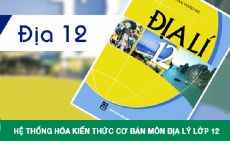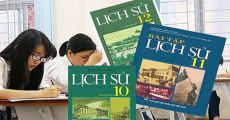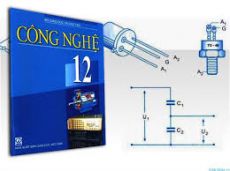Đề thi HK2 môn Tiếng Anh 11 năm 2022-2023
Trường THPT Chu Văn An
-
Choose the word whose underlined part is pronounced differently from that of the rest.
Câu 1:
Choose the word whose underlined part is pronounced differently: attraction, abundant, accommodation, magnificent
A. attraction
B. abundant
C. accommodation
D. magnificent
-
Câu 2:
Choose the word whose underlined part is pronounced differently: elegance, complex, technology, environment
A. elegance
B. complex
C. technology
D. environment
-
Câu 3:
Choose the word whose underlined part is pronounced differently: flood, footprint, look, wood
A. flood
B. footprint
C. look
D. wood
-
Choose the word whose syllable is stressed differently from the rest.
Câu 4:
Choose the word whose syllable is stressed differently: deodorise, automatic, disposal, commercial
A. deodorise
B. automatic
C. disposal
D. commercial
-
Câu 5:
Choose the word whose syllable is stressed differently: residential, optimistic, improvement, population
A. residential
B. optimistic
C. improvement
D. population
-
Câu 6:
Choose the word whose syllable is stressed differently: sustainable, infrastructure, visitor, purchase
A. sustainable
B. infrastructure
C. visitor
D. purchase
-
Choose the best answer to complete each of the following questions.
Câu 7:
A specific area of biotechnology that shows great promise for treatment and cure of life- _______ diseases.
A. developing
B. threatening
C. hoping
D. fitting
-
Câu 8:
No one can predict the future exactly. Everything may happen _______.
A. expected
B. unexpected
C. expectedly
D. unexpectedly
-
Câu 9:
A group of connected things, especially buildings, designed for a particular purpose is called a _______.
A. complex
B. heritage
C. relic
D. palace
-
Câu 10:
Taj Mahal is considered to be the masterpiece of _______ style in design and construction technique.
A. architecture
B. architect
C. architectural
D. architecturing
-
Câu 11:
She had to leave early, ______ she?
A. mustn't
B. didn't
C. hasn't
D. shouldn't
-
Câu 12:
The first book ______ on my summer reading list is “War and Peace”.
A. reading
B. read
C. to read
D. to be read
-
Câu 13:
I live in a pleasant room _______ the garden.
A. to overlook
B. overlooking
C. overlooked
D. which overlooking
-
Câu 14:
If people live to be 100 in the UK, they ______ a letter from the queen.
A. receive
B. receives
C. will be received
D. would receive
-
Câu 15:
Countries can improve the _______ of the inhabitants by reducing pollution.
A. city dwellers
B. traffic problems
C. quality of life
D. infrastructure
-
Câu 16:
Please don't make noise, _______ ?
A. do you
B. will you
C. won't you
D. can't you
-
Read the following passage and choose the best answer to fill in each blank.
It is a common belief that adults are responsible for big issues ‟such as environmental protection and conservation, and youths can do (17)__________ but focus on their studies or have fun. (18) __________ , the stories of the young people in the Young Voices for the Planet show that even at a young age, people are able to do something for their communities and can really contribute to the care and preservation of the environment. Kids can also do things to (19) __________ a difference, given the chance. And though their skills and talents may vary, they can use their unique gifts to help to preserve the environment and save the world. One of the children in the stories, Olivia, says:
“Every one of us has a great gift we can use to help the earth. Everyone, at any age, can do something, (20) ________ it is picking up rubbish along the side of the road, filling a bird feeder, or bringing reusable bags to the grocery store. For me, I used my artwork. Find your cause and use your talents. The quality of our world is counting (21) __________ you.”
Câu 17:
(17)__________
A. everything
B. something
C. anything
D. nothing
-
Câu 18:
(18) __________
A. Therefore
B. However
C. Otherwise
D. Moreover
-
Câu 19:
(19) __________
A. make
B. do
C. create
D. have
-
Câu 20:
(20) ________
A. but
B. so
C. whether
D. if
-
Câu 21:
(21) __________
A. at
B. up
C. on
D. down
-
Read the following passage and mark the letter A, B, C, or D to indicate the correct answer to each of the questions.
As the twentieth century began, the importance of formal education in the United States increased. The frontier had mostly disappeared and by 1910 most Americans lived in towns and cities. Industrialization and the bureaucratization of economic life combined with a new emphasis upon credentials and expertise to make schooling increasingly important for economic and social mobility. Increasingly, too, schools were viewed as the most important means of integrating immigrants into American society.
The arrival of a great wave of southern and eastern European immigrants at the turn of the century coincided with and contributed to an enormous expansion of formal schooling. By 1920 schooling to age fourteen or beyond was compulsory in most states, and the school year was greatly lengthened. Kindergartens, vacation schools, extracurricular activities, and vocational education and counseling extended the influence of public schools over the lives of students, many of whom in the larger industrial cities were the children of immigrants. Classes for adult immigrants were sponsored by public schools, corporations, unions, churches, settlement houses, and other agencies.
Reformers early in the twentieth century suggested that education programs should suit the needs of specific populations. Immigrant women were once such population. Schools tried to educate young women so they could occupy productive places in the urban industrial economy, and one place many educators considered appropriate for women was the home.
Although looking after the house and family was familiar to immigrant women, American education gave homemaking a new definition. In pre-industrial economies, homemaking had meant the production as well as the consumption of goods, and it commonly included income-producing activities both inside and outside the home, in the highly industrialized early-twentieth-century United States, however, overproduction rather than scarcity was becoming a problem. Thus, the ideal American homemaker was viewed as a consumer rather than a producer. Schools trained women to be consumer homemakers cooking, shopping, decorating, and caring for children "efficiently" in their own homes, or if economic necessity demanded, as employees in the homes of others. Subsequent reforms have made these notions seem quite out-of-date.
Câu 22:
According to the passage, early-twentieth century education reformers believed that _______.
A. corporations and other organizations damaged educational progress
B. special programs should be set up in frontier communities to modernize them
C. different groups needed different kinds of education
D. more women should be involved in education and industry
-
Câu 23:
The word "it" in line 3 in paragraph 4 refers to _____.
A. education
B. production
C. homemaking
D. consumption
-
Câu 24:
The paragraph preceding the passage probably discusses _________________.
A. the formal schooling in the United States in the nineteen century
B. the industrialization and the bureaucratization of economic life the United States in the 19th century
C. the most important means of integrating immigrants into American society in the nineteen century
D. the urbanization in the United States in the nineteen century
-
Câu 25:
It can be inferred from paragraph 1 that one important factor in the increasing importance of education in the United States was _________________________.
A. an increase in the number of trained teachers
B. the expanding economic problems of schools
C. the increased urbanization of the entire country
D. the growing number of schools in frontier communities
-
Câu 26:
According to the passage, one important change in United States education by the 1920's was that _________________________________.
A. the amount of time spent on formal education was limited
B. most places required children to attend school
C. adults and children studied in the same classes
D. new regulations were imposed on nontraditional education
-
Choose the answer A, B, C, or D that has the same meaning to the sentence given.
Câu 27:
Peter said that he would take responsibility for the project. But then he denied that.
A. Because Peter didn't say that he would take responsibility for the project, he denied it.
B. Having said that he would take responsibility for the project, Peter then denied it.
C. Having said that he would take responsibility for the project, Peter then didn't deny it.
D. Because Peter would take responsibility for the project, he denied it.
-
Câu 28:
The students are copying the words which are written on the board.
A. The students are copying the words writing on the board.
B. The students are copying the words written on the board.
C. The students are copying the words which write on the board.
D. The students are copying the words that are writing on the board.
-
Câu 29:
Because the farmers had been told about the dangers of chemical fertilisers, they turned to bio-fertilisers.
A. Having been told about the dangers of chemical fertilisers, they turned to bio-fertilisers.
B. Despite having been told about the dangers of chemical fertilisers, they didn't turn to bio-fertilisers.
C. After having told about the dangers of chemical fertilisers, they turned to bio-fertilisers.
D. Because of having been told about the dangers of chemical fertilisers, they didn't turn to bio-fertilisers.
-
Câu 30:
Many animal species are in danger of extinction due to the loss of habitat and inability to adapt to climate change.
A. Thanks to the loss of habitat and inability to adapt to climate change, many animal species are in danger of extinction.
B. Many animal species are threatened with extinction because of the loss of habitat and inability to adapt to climate change.
C. Despite the loss of habitat and inability to adapt to climate change, many animal species are in danger of extinction.
D. Many animal species are threatened with extinction, which results in the loss of habitat and inability to adapt to climate change














